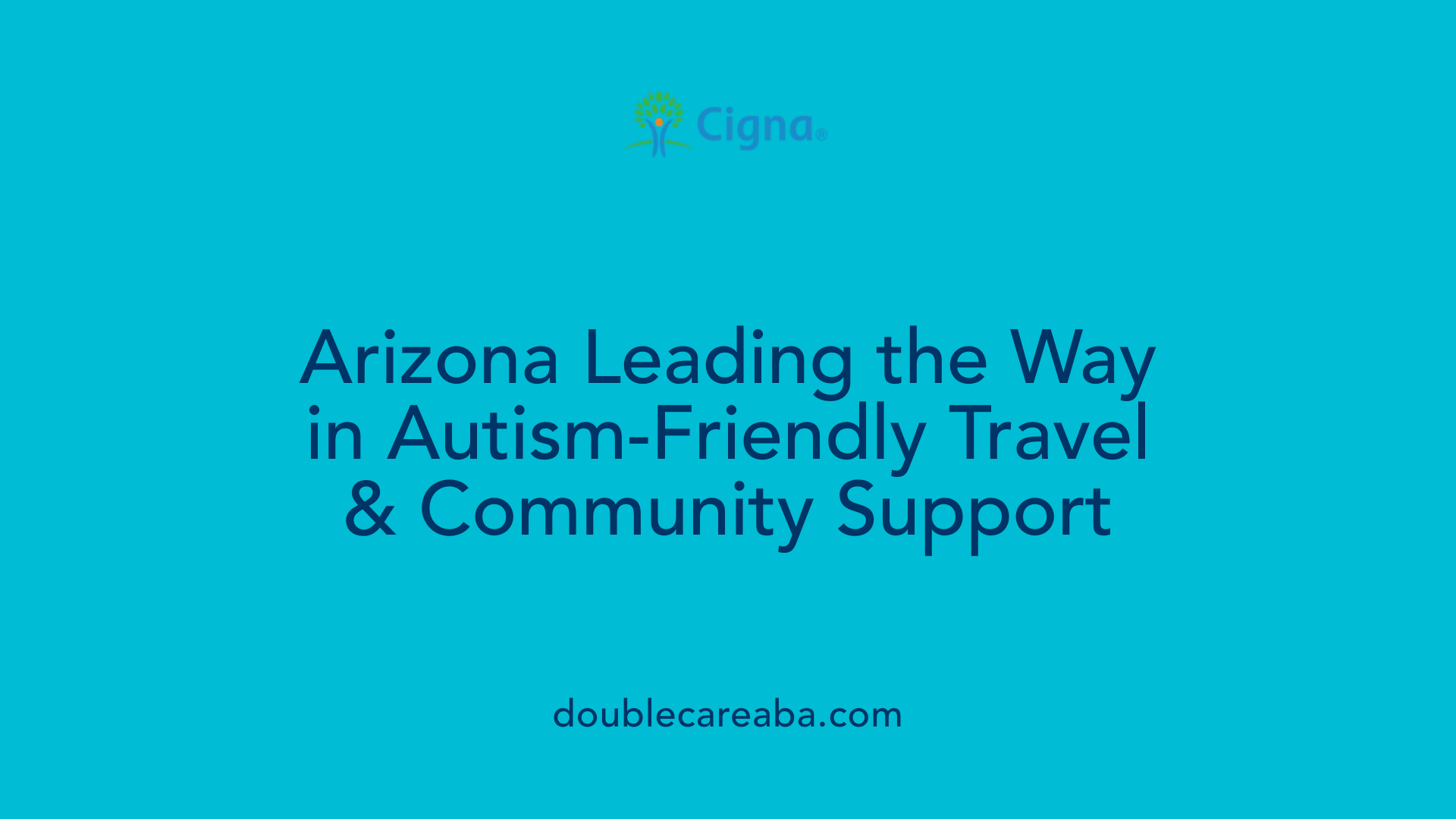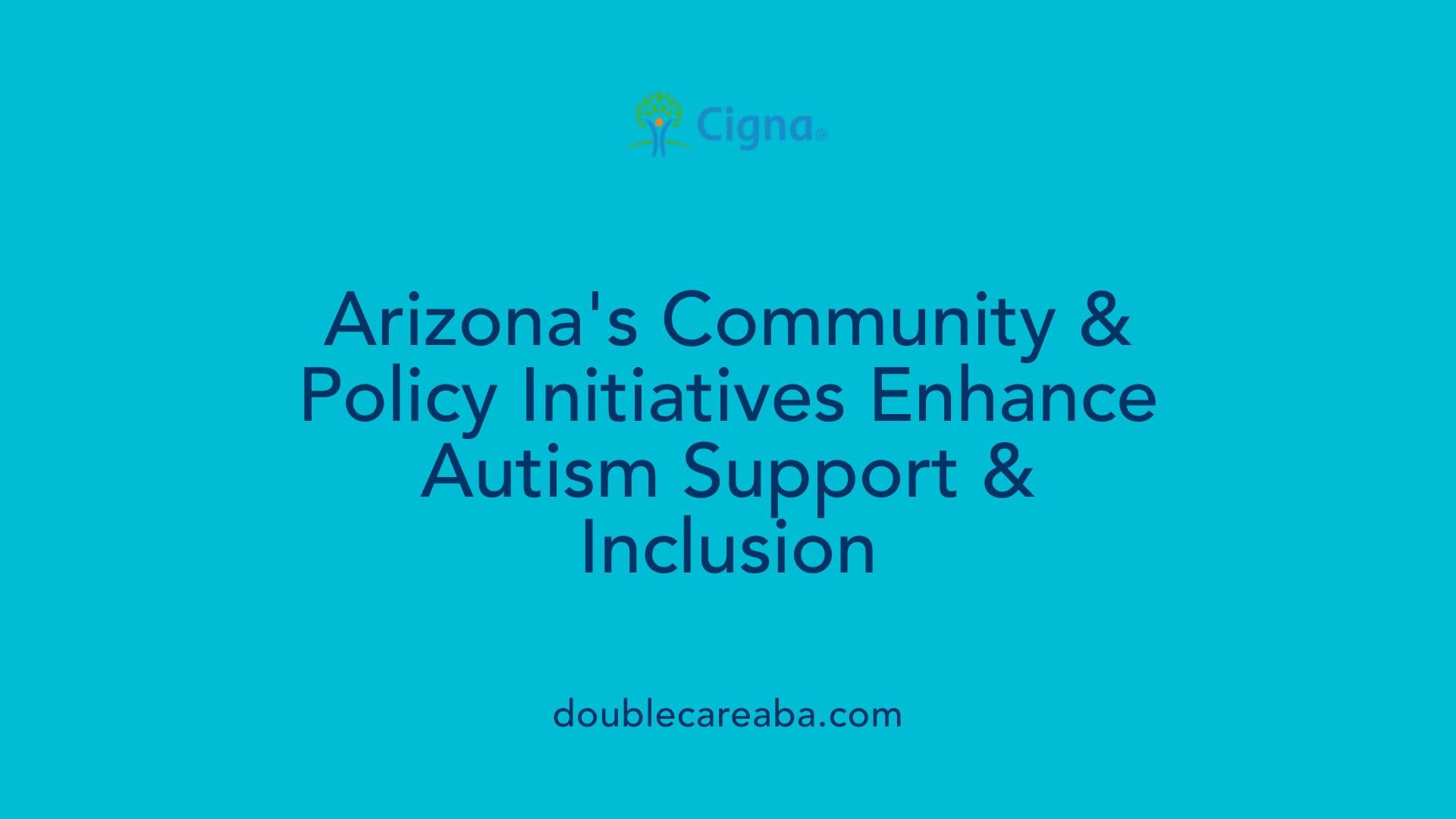Evaluating Arizona's Environment for Individuals with Autism
Arizona has garnered notable recognition for its comprehensive autism services, inclusive initiatives, and community support, making it a key state to consider for individuals with autism and their families. From city-level certifications to robust state programs, Arizona demonstrates a strong commitment to fostering an inclusive environment that caters to neurodiversity across various settings. This article explores the breadth and depth of support services, legislation, community initiatives, and travel accommodations available in Arizona, providing a detailed overview of whether it stands as a good state for autism support.
Arizona's Leadership in Autism-Friendly Initiatives

What autism-friendly accommodations, attractions, and travel options are generally available?
Arizona leads nationally in creating autism-friendly travel experiences. Mesa, notably, became the first city in the United States to earn Autism Certification, reflecting its commitment to accessible tourism.
In Mesa, numerous accommodations and attractions are equipped with sensory-friendly amenities. This includes quiet zones, sensory kits, and trained staff members who understand how to support visitors with neurodiverse needs. Hotels such as the Delta Hotels by Marriott Phoenix-Mesa actively participate in these initiatives, ensuring their environments are welcoming.
To facilitate autism-friendly travel, Mesa has developed an Accessibility Travel Guide that highlights inclusive attractions, accommodations, and dining options tailored to sensory sensitivities. Many of these businesses are officially Autism Centers, providing tailored services to enhance the travel experience.
These comprehensive efforts have garnered national media attention, positioning Mesa as a model for accessible tourism. Such initiatives ensure that travelers on the spectrum can enjoy sightseeing, recreation, and leisure activities with confidence and ease.
Are there specialized programs and community resources for individuals with autism in Arizona?
Yes, Arizona offers a broad spectrum of programs aimed at supporting individuals with autism and their families. The Autism Society of Greater Phoenix plays a pivotal role by providing classes, support groups, and community resources designed to foster social skills, family support, and community inclusion.
State-supported programs extend into employment and education. The Arizona Department of Economic Security manages vocational rehabilitation services that assist adults with autism in finding employment. These programs include job training, supported employment initiatives, and personalized job search support.
Community programs are complemented by recreational and social opportunities offered by various nonprofit organizations, which help foster connections, develop social skills, and promote independence for individuals on the spectrum.
What legislative measures support autism services and insurance coverage?
Arizona has enacted progressive legislation to ensure access to autism services. The Autism Insurance Reform Law mandates insurance companies to cover autism diagnosis and treatment. Since 2019, insurers are required to provide at least 25 hours of ABA therapy weekly for children under 18, with a maximum annual benefit of $50,000.
Medicaid support through the Arizona Long-Term Care System (ALTCS) further bolsters access by covering up to 40 hours of ABA therapy per week. In addition to ABA, Medicaid offers occupational and speech therapies for children under 21.
These legislative measures have positioned Arizona as a leader nationwide, ensuring financial barriers do not prevent children and young adults from accessing essential therapies and intervention services.
How comprehensive is Arizona's early intervention system for autism?
Early detection and intervention are vital for better developmental outcomes. Arizona emphasizes this through programs like AzEIP, which provides early intervention services for children under the age of 3. These services include speech, occupational, and behavioral therapies designed to support early development.
Medicaid provides additional support with up to 40 hours per week of ABA therapy for children under 21. While the average age of diagnosis is around 4 years—slightly later than the national average—ongoing efforts focus on reducing delays through better screening and awareness.
Overall, Arizona’s early intervention system integrates government programs, healthcare services, and family engagement to promote early developmental support.
How does Arizona compare to other states regarding autism support and resources?
Arizona stands out nationally for its comprehensive approach to autism support. According to a 2015 WalletHub analysis, Arizona was named the best state for autism services in the U.S. Its strengths include a high number of autism specialists, extensive health services, and early intervention programs.
While many states excel in specific areas such as access to therapies, Arizona’s integrated policies and community support networks provide a well-rounded framework for autistic individuals. Its legislative initiatives, early screening programs, and employment support significantly contribute to its top ranking.
Nevertheless, disparities exist, especially in rural regions where access can be limited. Arizona continues to work towards equitable resource distribution across its diverse geographical landscape.
What is the prevalence of autism in Arizona, and how effective are current programs?
Prevalence estimates from the CDC and the Arizona Developmental Disabilities Surveillance Program suggest that about 1 in 59 children in Arizona have autism—a rate similar to or slightly higher than national averages. The prevalence is higher among boys (1 in 38) than girls (1 in 152).
Despite these figures, Arizona’s robust early detection and intervention initiatives—including widespread screening and community programs—aim to improve developmental outcomes and quality of life.
While earlier diagnoses could improve intervention efficacy, the existing support network has shown positive results, particularly in employment and community participation.
What community and healthcare resources are available in Arizona?
Arizona boasts a wealth of support structures, including specialized clinics, therapists, and community organizations. The Autism Society of Greater Phoenix, for instance, offers social programs, recreational activities, and family resources that promote inclusion.
Healthcare providers give access to evidence-based therapies like ABA, speech, and occupational therapy through public and private channels. The high density of specialists ensures that many children and adults receive appropriate care.
Vocational rehabilitation services help adults with autism gain employment, with success stories demonstrating the effectiveness of tailored programs.
In what ways does Arizona support autism awareness and advocacy?
Arizona demonstrates leadership through initiatives like having Mesa as the first Autism Certified City nationally. This promotes inclusive environments and increases accessibility for autistic travelers.
Public awareness efforts are supported by various community organizations, events, and campaigns aimed at reducing stigma, educating the public, and advocating for policy improvements.
This ongoing advocacy creates a supportive climate that encourages acceptance of neurodiversity and promotes community participation, further establishing Arizona as a pioneer in autism support and inclusion.
The Impact of Arizona’s Community and Policy Measures on Autism Support

How do different states compare regarding autism support and resources?
States across the U.S. exhibit significant variation in autism support services and resources. In the Northeast, for instance, families often benefit from comprehensive therapies, educational programs, and robust legislative measures, resulting in higher support levels. Conversely, rural and southern states frequently face shortages of specialized services, impacting access and quality.
Higher prevalence rates in some areas correlate with stronger insurance policies, well-established clinical frameworks, and active research institutions. For example, states like Arizona report a prevalence of about 1 in 54 children, similar to national findings, but with a notable surplus of autism specialists and support programs.
In terms of geographic disparities within states, rural areas tend to have fewer resources, especially affecting minority communities, such as Black and Hispanic children, who already encounter barriers to healthcare access. The resource load (RLc)—a measure of service density—varies nationally, with families on average living within approximately 11 miles of autism services, though this distance can be greater in less populated regions.
Moving toward equitable support requires policy reforms, increased funding, and digital health solutions to bridge gaps across state lines and urban-rural divides. Addressing these disparities will help ensure all children, regardless of location, receive the early intervention and ongoing support they need.
Arizona: A Leading State for Autism Support and Inclusion
With its progressive legislation, community-led initiatives, and recognition as a top autism support state, Arizona exemplifies a supportive environment that prioritizes the needs and well-being of individuals with autism. The city of Mesa’s pioneering Autism Certification and statewide programs underscore the state’s commitment to inclusivity, early intervention, and accessible services. While ongoing efforts are needed to address rural disparities and improve early diagnosis, Arizona’s comprehensive approach and community involvement make it a favorable state for individuals with autism and their families. As awareness continues to grow and support systems expand, Arizona’s reputation as a leader in autism support is likely to strengthen further, offering a model for other states.
References
- Arizona! - Autism Society of Greater Phoenix
- Is Arizona A Good State For Autism? - Astra ABA
- Autism Travel - Visit Mesa
- Is Arizona A Good State For Autism? - ABATherapistJobs.com
- Autism Benefits by State 2025 - World Population Review
- Framework for Autism in Canada
- Government of Canada launches Framework for Autism in Canada ...
- Autism - World Health Organization (WHO)
- Policies for Individuals With Autism: Gaps, Research, and ...
- Public Policy | Autism Society















